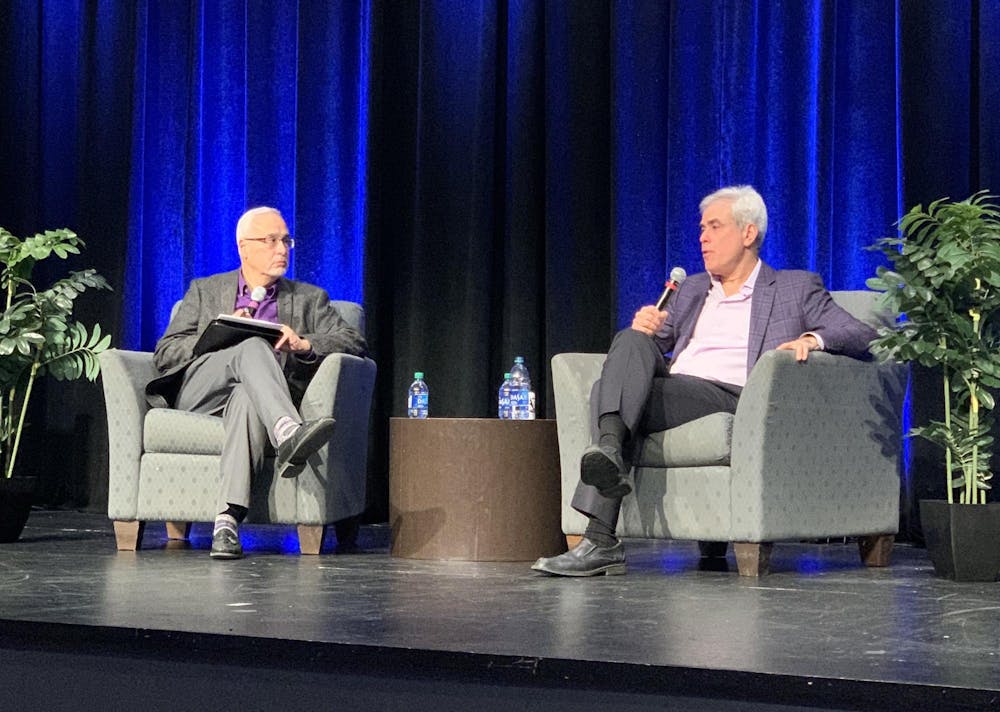Jonathan Haidt, a social psychologist and researcher at New York University, spoke at a Feb. 7 lecture.
The event was co-sponsored by the Student Free Speech Alliance, UNC Alumni Free Speech Alliance, Heterodox Heels and the UNC Program for Public Discourse. Titled “Academia and the Anxious Generation: How Universities Lost the Trust of America,” the lecture focused on dynamics within U.S. universities and their relationship with free speech.
“The classroom is a place where we want to build cultural, political and social understanding,” Harrington Shaw, president of the SFSA, said. “And we think that a very important part of that means engaging in conversations that are uncomfortable and across differences.”
The event began with Haidt discussing the rise of anxiety and depression since 2012. He said rates have tripled since then, according to a study from the American College Health Association.
In 2014, he said, universities saw a sudden increase in students entering their studies in what he described as a “defense mode.” This phenomenon, Haidt said, is not due to living in a more dangerous world than prior generations did, but due to living in a digital world.
“A normal part of being an American college student now is that you are anxious and depressed,” he said.
After discussing mental health, Haidt switched to the main focus of his lecture, a lack of free speech in universities. He began by defining the tenets that universities should uphold: truth, light and freedom.
“When you focus on identity, you lose academic excellence,” Haidt said, adding that diversity is not incompatible with good university structure.
Haidt went on to say that work by the philosopher Plato used to be praised in academia as “provocative.” Now, he said, being provocative is dangerous. Haidt described the ease of "cancel culture" on social media as similar to handing everyone dart guns and saying “shoot, shoot, shoot.”




